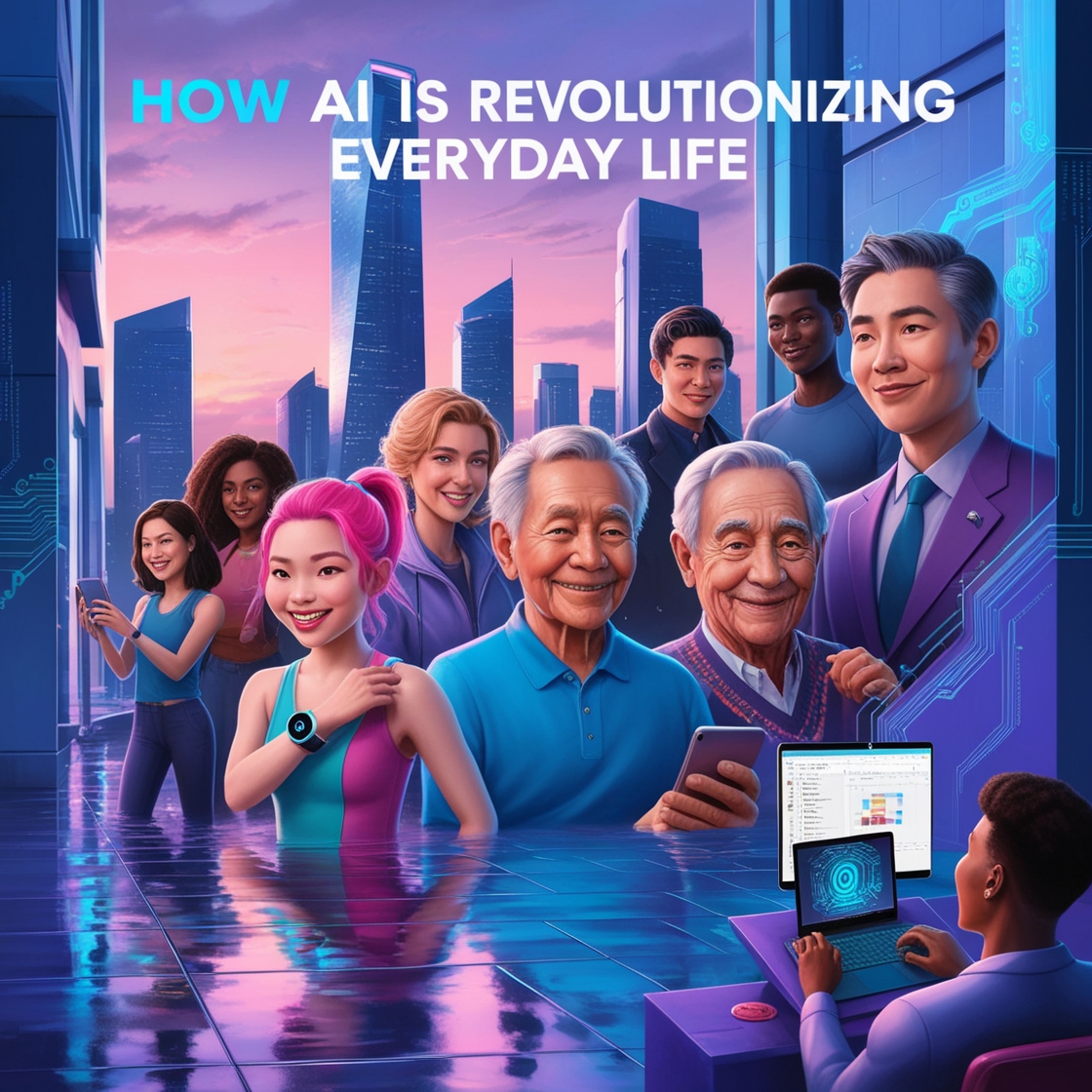Introduction
How AI is Revolutionizing Everyday Life
Artificial Intelligence (AI) has transitioned from a niche technology to a pervasive force that is reshaping our daily lives. From the moment we wake up to the time we go to bed, AI is subtly yet profoundly influencing various aspects of our routine. Here’s a look at how AI is revolutionizing everyday life.
1. Personalized Experiences
One of the most noticeable ways AI is impacting our lives is through personalized experiences. Streaming services like Netflix and Spotify use AI algorithms to analyze our preferences and viewing/listening habits. This data helps them recommend movies, shows, and music tailored to our tastes, enhancing our entertainment experiences.
2. Smart Home Devices
Smart home technology has seen rapid advancements, with AI playing a crucial role. Devices like Amazon Echo and Google Home use AI to understand voice commands and control various aspects of our homes. From adjusting the thermostat to turning on lights or playing music, these devices make our lives more convenient and connected.
3. Healthcare Innovations
AI is making significant strides in healthcare. From predictive analytics that help diagnose diseases early to AI-driven tools that assist in creating personalized treatment plans, the technology is improving patient outcomes. AI algorithms can analyze medical images more quickly and accurately than human counterparts, leading to faster diagnoses and treatments.
4. Enhanced Communication
AI-powered tools are transforming communication. Language translation apps like Google Translate use AI to bridge language barriers, making it easier for people to connect globally. Additionally, AI chatbots are becoming common in customer service, providing instant support and resolving issues efficiently.
5. Autonomous Vehicles
Self-driving cars are no longer a distant dream but a reality that’s gradually becoming mainstream. AI algorithms process vast amounts of data from sensors and cameras to navigate roads, avoid obstacles, and ensure passenger safety. While fully autonomous vehicles are still in development, many modern cars already incorporate AI for features like adaptive cruise control and lane-keeping assistance.
6. Financial Services
In the financial sector, AI is optimizing various processes. From fraud detection systems that analyze transaction patterns to robo-advisors that provide investment recommendations based on market trends, AI is enhancing the efficiency and security of financial transactions and investments.
7. Education and Learning
AI is also transforming education. Adaptive learning platforms use AI to tailor educational content to individual students’ needs, helping them learn at their own pace. AI-driven tools provide valuable insights to educators, enabling them to identify areas where students may need additional support and adjust their teaching strategies accordingly.
8. Improved Productivity
AI tools like virtual assistants and automation software are boosting productivity in both personal and professional settings. These tools can handle repetitive tasks, schedule meetings, and manage emails, freeing up time for more strategic activities and reducing the mental load on individuals.
9. Advanced Retail Experiences
Retailers are leveraging AI to enhance shopping experiences. AI-powered recommendation engines suggest products based on browsing history and past purchases. Additionally, chatbots assist customers with queries, and AI-driven inventory management systems ensure that shelves are stocked with the right products.
10. Environmental Impact
AI is also being used to address environmental challenges. From optimizing energy consumption in buildings to predicting and managing natural disasters, AI technologies are contributing to more sustainable practices and better environmental stewardship.
Conclusion
AI’s integration into our daily lives is a testament to its transformative potential. As the technology continues to evolve, its influence will likely grow, further revolutionizing the way we live, work, and interact. Embracing these advancements while staying mindful of ethical considerations will ensure that AI benefits society as a whole, paving the way for a more connected and efficient future.
